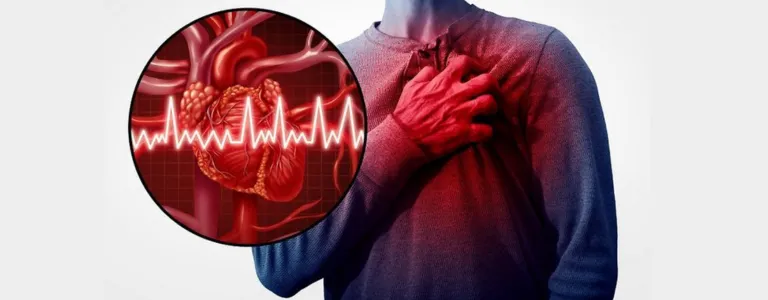Heart Failure Clinic

What is Heart Failure?
Heart failure, also known as congestive heart failure, occurs when the heart is unable to pump blood effectively enough to meet the body's needs. This can happen when the heart becomes too weak or stiff, causing blood to back up into the lungs, abdomen, or lower body. As a result, organs and tissues may not receive adequate oxygen and nutrients.
Heart failure can develop over time due to various underlying conditions such as coronary artery disease, high blood pressure, diabetes, or damage from a heart attack. Symptoms of heart failure may include shortness of breath, fatigue, swollen legs, rapid or irregular heartbeat, and persistent coughing or wheezing. Early diagnosis and treatment are essential for managing this chronic condition and preventing further complications.
How is Heart Failure Diagnosed?
Diagnosing heart failure involves a combination of medical history, physical examinations, and various tests to assess heart function. At Dr. Javed's Heart Rhythm Clinic, we offer a comprehensive approach to diagnosis, including the following:
- Physical Examination: The doctor will check for signs of heart failure, such as swelling in the legs, ankles, or abdomen, abnormal heart sounds, and fluid buildup in the lungs.
- Blood Tests: Blood tests may be done to check for elevated levels of B-type natriuretic peptide (BNP) or N-terminal pro-BNP (NT-proBNP), which can indicate heart failure. Blood tests can also help identify any underlying conditions contributing to heart failure.
- Electrocardiogram (ECG/EKG): This test records the electrical activity of the heart and can detect abnormal heart rhythms or signs of heart muscle damage.
- Echocardiogram: An ultrasound of the heart that provides detailed images of the heart’s structure and function. It helps assess the heart’s pumping efficiency (ejection fraction) and detect any abnormalities in the heart valves or chambers.
- Chest X-ray: This imaging test helps determine whether the heart is enlarged or if there is fluid buildup in the lungs, both of which are signs of heart failure.
- Stress Test: This test evaluates how the heart functions under physical stress, either through exercise or medication, and can reveal issues that are not visible during rest.
- Cardiac MRI: A detailed imaging test that provides a clearer picture of the heart’s structure and function, helping to diagnose complex cases of heart failure.
- Cardiac Catheterization: A minimally invasive procedure where a thin tube is inserted into the heart’s blood vessels to measure pressure and blood flow, allowing for a more accurate diagnosis.
Treatment Options for Heart Failure
The treatment for heart failure aims to improve symptoms, slow disease progression, and enhance quality of life. At Dr. Javed’s Heart Rhythm Clinic, we provide a range of treatment options, tailored to the individual needs of each patient:
- Medications:
- Diuretics (Water Pills): These help reduce fluid buildup in the lungs and body, relieving symptoms like swelling and shortness of breath.
- ACE Inhibitors/ARBs: These medications relax blood vessels and reduce the workload on the heart.
- Beta-blockers: These slow down the heart rate and reduce blood pressure, making it easier for the heart to pump blood.
- Aldosterone Antagonists: These medications help reduce fluid retention and improve heart function.
- Digoxin: Helps the heart pump more efficiently and may be prescribed for patients with atrial fibrillation along with heart failure.
- Lifestyle Changes:
- Diet and Exercise: A heart-healthy diet low in sodium and regular physical activity can help manage heart failure symptoms and improve overall cardiovascular health.
- Weight Management: Monitoring weight and reducing excess fluid buildup is important in managing heart failure.
- Smoking Cessation: Quitting smoking reduces stress on the heart and improves circulation.
- Implantable Devices:
- Pacemaker: For patients with heart failure and arrhythmias, a pacemaker can help regulate the heart's rhythm.
- Implantable Cardioverter-Defibrillator (ICD): This device monitors the heart and delivers a shock if it detects a life-threatening rhythm.
- Biventricular Pacemaker (Cardiac Resynchronization Therapy): This device helps the ventricles pump in a coordinated manner, improving heart function in some heart failure patients.
- Surgical Options:
- Coronary Artery Bypass Surgery: For patients with blocked arteries causing heart failure, bypass surgery may improve blood flow to the heart muscle.
- Heart Valve Surgery: If heart failure is caused by faulty valves, surgery may be necessary to repair or replace them.
- Left Ventricular Assist Device (LVAD): A mechanical pump implanted to help the heart pump blood, typically used in advanced heart failure patients awaiting a heart transplant.
- Heart Transplant: In severe cases where other treatments are ineffective, a heart transplant may be considered as a life-saving option for end-stage heart failure.
